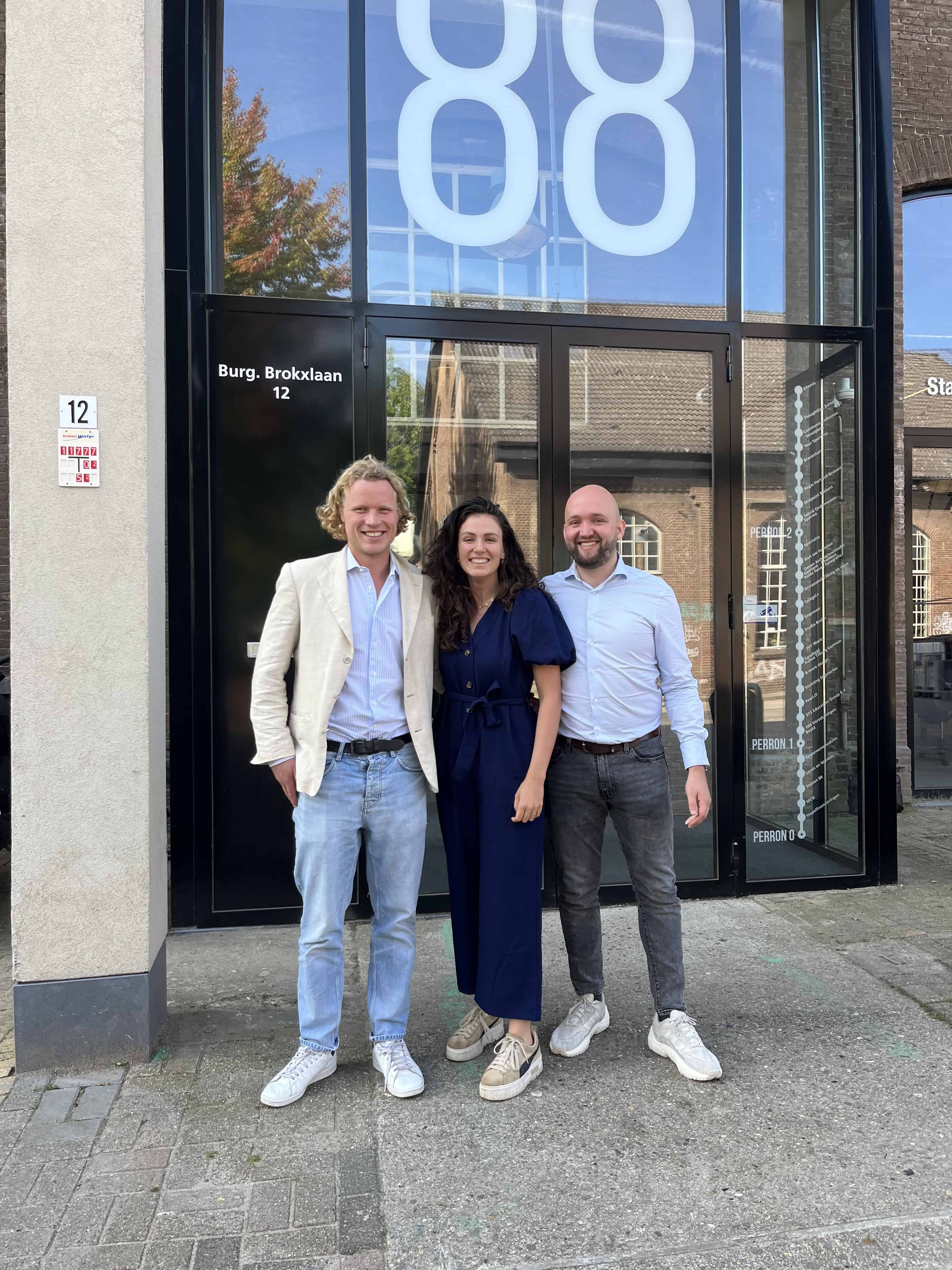
About Qblox
- Founders: Jules van Oven and Niels Bultink
- Founded in: 2019
- Employees: 22
- Money raised: -
- Ultimate goal: Support scientists and institutions worldwide with scalable and low-latency qubit control equipment
Quantum computers are only at the beginning of their development, but can potentially mean a lot to our day-to-day life. Start-up Qblox from Delft supplies dedicated, fully-integrated quantum control stacks, which are a fundamental part of the quantum computer. In this way, quantum computers can be controlled efficiently, without the need for weeks of preparation or meters of electronic racks. In this episode of Start-up of the day, Business Manager Jaikishen Jayesingha brings you up to date on how the start-up is doing.
What problem are you solving?
“Scientists working with quantum computers in the lab spend a lot of time and energy connecting electronic devices together in order to control a quantum computer. Scientists have to connect and calibrate multiple electronic devices and make sure they all run in sync to the nanosecond. This process can sometimes take weeks. Moreover, for scaling up quantum computers, this approach is unsuitable. Indeed, these applications need to scale towards thousands of quantum bits, ie, qubits (ed. a unit of quantum information). To work with five qubits, scientists need control electronics of about five meters in size alone. The Qblox control stack is only 19 inches in size and can control up to 20 superconducting qubits in one electronic device.”
Will quantum computers play a major role in the society of the future?
“For the foreseeable future, they won’t. But that will change within ten years, I expect. Quantum computers are not yet powerful enough to make a big difference. But if we soon have a million qubits per quantum computer, the technology has the potential to change the world. Take, for example, developing nuclear fusion reactors that can solve the energy problem without the nasty nuclear waste from current-day nuclear fission reactors. This is a long project that is currently difficult to move forward, because the materials of the reactor walls cannot handle the heat. Quantum computers can play a role in finding new materials to strengthen those walls, through complex calculations and algorithms. Quantum Computers can also help the medical world one step forward, by using them to research vaccinations, for example. The possibilities are endless.”

Who are your customers?
“You can roughly divide our customer base into three categories. Academic institutions, such as Princeton University, University of Technology Sydney or Chalmers University in Sweden, are actively using Qblox electronics in their quantum computing labs. Large tech companies in the likes of IBM, Intel or Google also use our solution for their own quantum computers. Finally, we support start-up companies, which make quantum computers and then sell them as turnkey solutions to larger companies.”
What challenges are you currently facing?
“Finding new talent is sometimes difficult. We are a niche industry so we don’t always have many candidates to choose from. Fortunately, we are affiliated with TU Delft. That makes our search a little easier. In addition, we occasionally have to deal with supply chain issues. Electronics components are hard to come by at the moment, chips for example. Last year a supplier told us that it could take up to a year before new parts could be delivered. We spend a lot of our capital on to still getting a hold on those chipsh to ensure that our delivery times are not compromised.”
What’s on the agenda next?
“We have a number of projects in the pipeline. For example, we are part of the Quantum Internet Alliance: a European consortium led by Stephanie Wehner, professor at TU Delft, that is going to set up the European quantum internet. We are also participating in another project, backed by the European Innovation Council, in which we are developing a control stack for a 1000 qubit quantum computer. So there are plenty of exciting things to come.”








